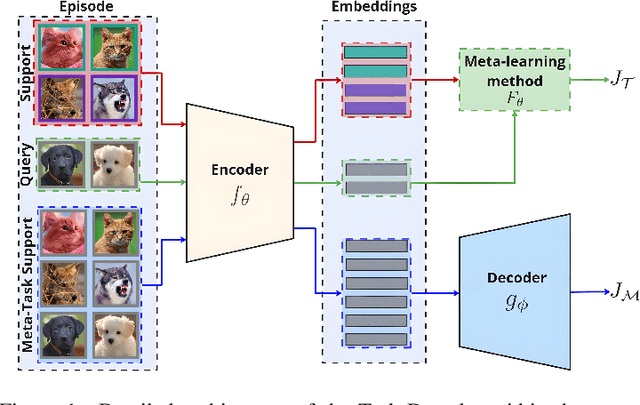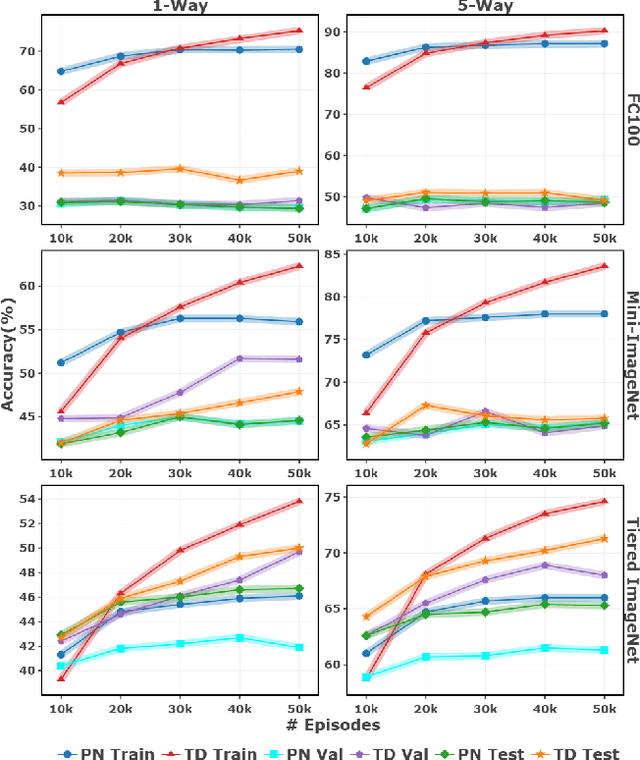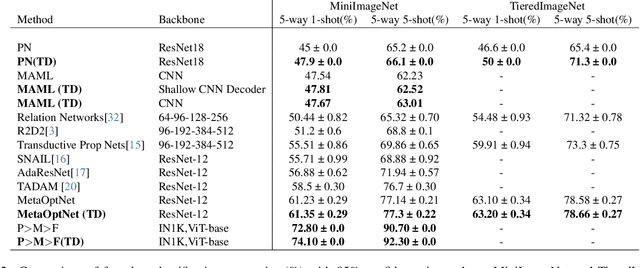Ryan Antle
Meta-Tasks: An alternative view on Meta-Learning Regularization
Feb 27, 2024



Abstract:Few-shot learning (FSL) is a challenging machine learning problem due to a scarcity of labeled data. The ability to generalize effectively on both novel and training tasks is a significant barrier to FSL. This paper proposes a novel solution that can generalize to both training and novel tasks while also utilizing unlabeled samples. The method refines the embedding model before updating the outer loop using unsupervised techniques as ``meta-tasks''. The experimental results show that our proposed method performs well on novel and training tasks, with faster and better convergence, lower generalization, and standard deviation error, indicating its potential for practical applications in FSL. The experimental results show that the proposed method outperforms prototypical networks by 3.9%.
Unsupervised Representation Learning to Aid Semi-Supervised Meta Learning
Oct 19, 2023



Abstract:Few-shot learning or meta-learning leverages the data scarcity problem in machine learning. Traditionally, training data requires a multitude of samples and labeling for supervised learning. To address this issue, we propose a one-shot unsupervised meta-learning to learn the latent representation of the training samples. We use augmented samples as the query set during the training phase of the unsupervised meta-learning. A temperature-scaled cross-entropy loss is used in the inner loop of meta-learning to prevent overfitting during unsupervised learning. The learned parameters from this step are applied to the targeted supervised meta-learning in a transfer-learning fashion for initialization and fast adaptation with improved accuracy. The proposed method is model agnostic and can aid any meta-learning model to improve accuracy. We use model agnostic meta-learning (MAML) and relation network (RN) on Omniglot and mini-Imagenet datasets to demonstrate the performance of the proposed method. Furthermore, a meta-learning model with the proposed initialization can achieve satisfactory accuracy with significantly fewer training samples.
 Add to Chrome
Add to Chrome Add to Firefox
Add to Firefox Add to Edge
Add to Edge